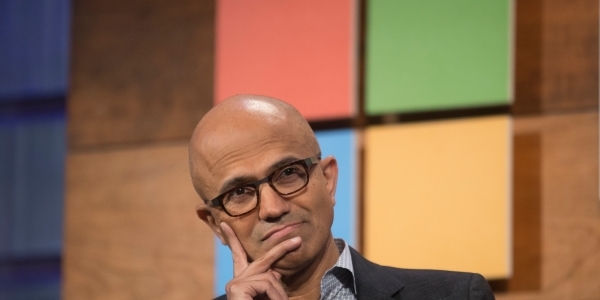
Tech giant Microsoft is ditching its paid-time-off model for U.S. employees, switching to a “discretionary time off” system that lets workers take time off as needed.
According to an email sent out today by Microsoft’s chief people officer Kathleen Hogan and viewed by Fortune, full-time US employees will no longer need to track their vacation time. By Jan. 16, employees will no longer accrue vacation hours, carry a vacation balance, or carry over unused vacation to subsequent years. The email specifies this policy change is for U.S. employees and doesn’t apply to hourly or nonexempt employees.
Microsoft, which had 122,000 U.S. employees as of June 30, appears to be one of the largest corporations to adopt the discretionary-time-off model.
“While we are adopting a more flexible approach to time away and you now no longer need to record vacation hours, we all must ensure that we maintain the highest of standards for our work and deliver on our commitments,” the email said.
“Beginning January 16, 2023, Microsoft is modernizing our vacation policy to a more flexible model and transitioning to Discretionary Time Off (DTO). How, when, and where employees do their jobs has dramatically changed and DTO aligns with more flexible ways of working,” a Microsoft spokesperson told Fortune. News of the change was first reported by the Verge.
Prior to the new system of discretionary time off, Microsoft employees received four weeks of paid time off per year, and received an extra week every sixth year, for a total of up to six weeks. Both of Microsoft’s major subsidiaries, GitHub and OpenAI, already use a discretionary PTO system.
Tech companies such as Netflix and Oracle have a similar discretionary-time-off system, though it is still relatively rare among large corporations.
And while the system is sometimes referred to as “unlimited time off,” it’s not universally beloved by employees. Some critics say that the model can actually result in employees taking less time off than in a system with an officially defined amount of annual vacation days, by creating social pressure that makes workers afraid to take time off. Employees can also lose out on money if their employer had previously paid them out for unused vacation days.
“Whole thing feels like cost-cutting and ‘we have to make sure you’re actually doing work,'” a person at Microsoft said about the change. “Unlimited PTO is basically never a net positive.”
Microsoft is keeping the 10 paid company holidays per year, and leaves of absence aren’t changing, a source told Fortune. It also plans to keep “Holistic Health Time Off,” which used to be called sick and mental health days. All leave-of-absence options will also not be affected, according to a screenshot of the new rules viewed by Fortune.
Employees with unused vacation days through Jan. 15 will receive a one-time payout in their Apr. 14th check, the email reads.





